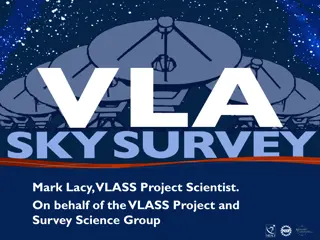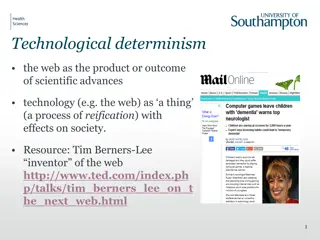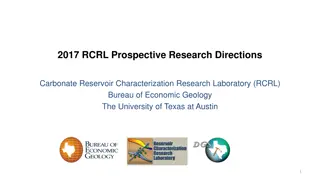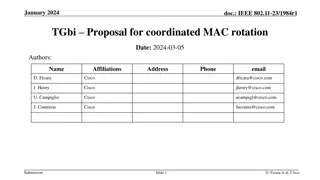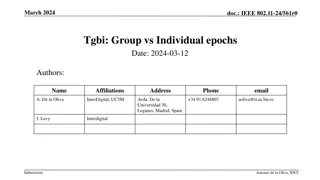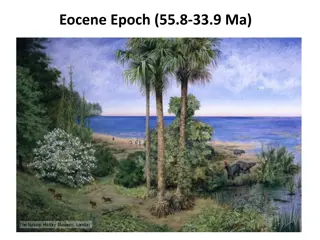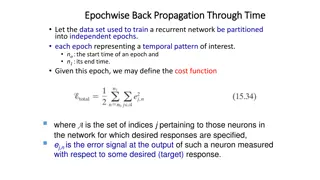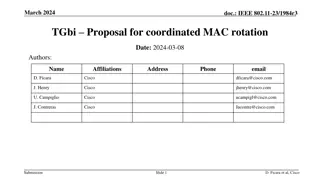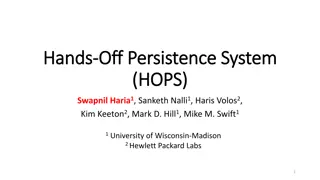Understanding the VLA Sky Survey and Its Scientific Goals
The VLA Sky Survey (VLASS) is a comprehensive radio survey covering the sky visible to the VLA, conducted in three epochs with a focus on imaging galaxies, detecting transient events, exploring Faraday tomography, and uncovering hidden phenomena in the universe. The survey employs innovative strateg
1 views • 22 slides
Exploring the Relationship Between Technology and Society through Historical Perspectives
This collection delves into the complex interplay between technology and society, contrasting the deterministic view with the idea of reciprocal shaping. It examines various epochs from pre-modernity to the information age, highlighting how technology has influenced cultural shifts and modernity its
6 views • 28 slides
RCRL Prospective Research Directions in Carbonate Reservoir Characterization
The RCRL group at the University of Texas at Austin specializes in research on carbonate reservoirs at various scales, from nanopores to basin architecture. They focus on developing predictive relationships and tools for reservoir characterization based on subsurface datasets and outcrop analogs. Th
1 views • 12 slides
Proposal for IEEE 802.11-23/1984r1 TGbi Coordinated MAC Rotation
The document discusses a proposal for IEEE 802.11-23/1984r1 TGbi focusing on coordinated MAC rotation, EDP epochs, anonymity sets, and group epochs. It introduces concepts like individual and mass rotations, anonymity set size, and hiding in the crowd examples. The coordination for group epochs and
1 views • 10 slides
Discussion on IEEE 802.11 Group vs. Individual Epochs
Trigger discussion on differences between group and individual epochs in IEEE 802.11 standards. Group epochs involve simultaneous transitions of MAC parameters by all or selected STAs based on AP trigger, while individual epochs allow each STA to independently change its parameters. Key points inclu
0 views • 4 slides
Overview of Cenozoic Epochs from Eocene to Pleistocene
Explore the key epochs of the Cenozoic Era, including Eocene, Oligocene, Miocene, Pliocene, and Pleistocene, each characterized by distinct geological and biological changes over millions of years. Follow the evolution of Earth's climate, flora, and fauna through captivating images representing each
0 views • 5 slides
Proposal for Establishing Epochs in IEEE 802.11-17/2059r1 Network
This proposal by Stephen Rodriguez from Cisco suggests partitioning time into epochs based on network trust levels to determine when clients should change their MAC addresses dynamically. The idea involves rotating MAC addresses at specified intervals depending on the trust level of the network conn
0 views • 5 slides
Epochwise Back Propagation Through Time for Recurrent Networks
In the context of training recurrent networks, Epochwise Back Propagation Through Time involves dividing the data set into independent epochs, each representing a specific temporal pattern of interest. The start time of each epoch, denoted by 'no', is crucial for capturing the sequential dependencie
0 views • 28 slides
Mitigating Client Frame Tracking in IEEE 802.11 Networks
Unencrypted and predictable frame fields in IEEE 802.11 networks can lead to client frame tracking, compromising user privacy. The Client Frame Tracking Countermeasures (CFTC) proposal aims to prevent tracking across epoch boundaries by obfuscating critical fields like PN, SN, and AID. Each epoch, l
0 views • 17 slides
IEEE 802.11-23/1984r3 TGbi Proposal for Coordinated MAC Rotation
The document discusses a proposal for coordinated MAC rotation within the IEEE 802.11-23/1984r3 framework. It delves into concepts like Epochs and Coordination, Anonymity Set Size, and Hiding in the Crowd examples. The focus is on enhancing privacy and security through group and individual rotations
0 views • 11 slides
Hands-Off Persistence System (HOPS) Overview
Hands-Off Persistence System (HOPS) is a novel approach to memory hierarchy design, focusing on volatile memory with minimal changes. It enables multiple copies of the same cacheline, handles cross-dependencies conservatively, and optimizes transaction processing epochs efficiently. The system archi
0 views • 72 slides
